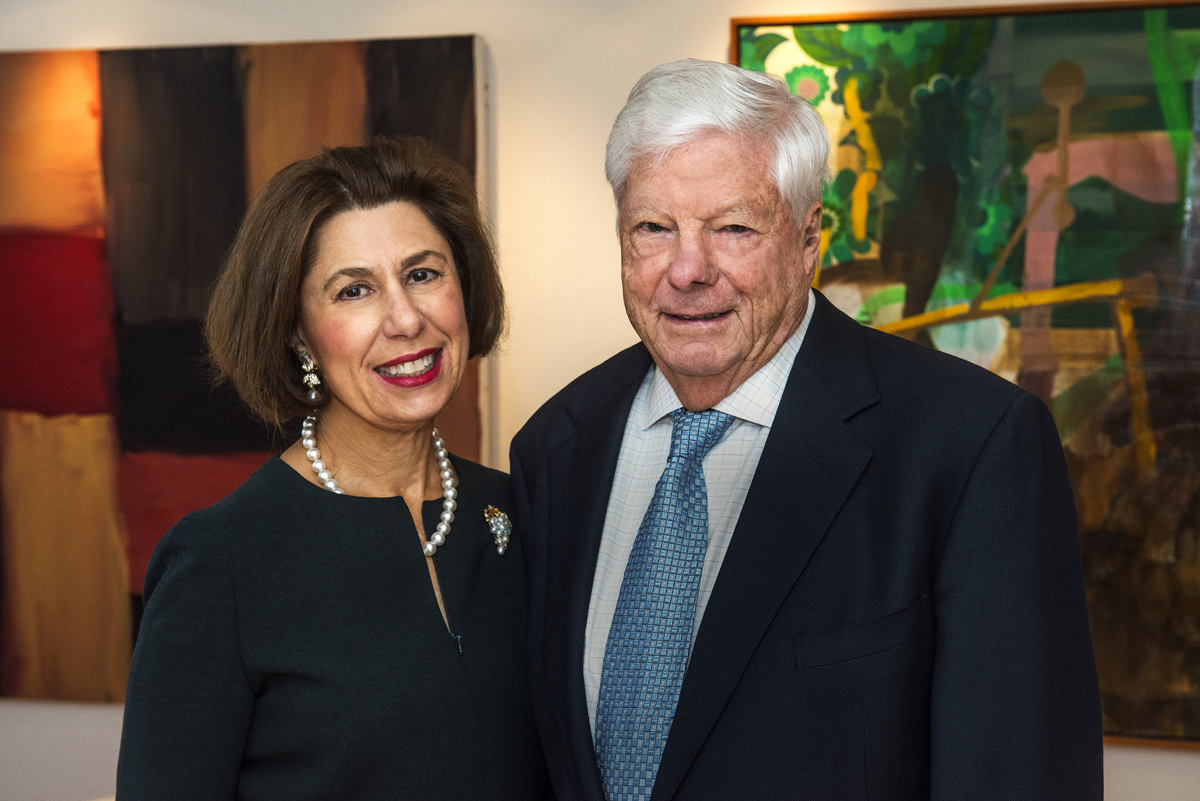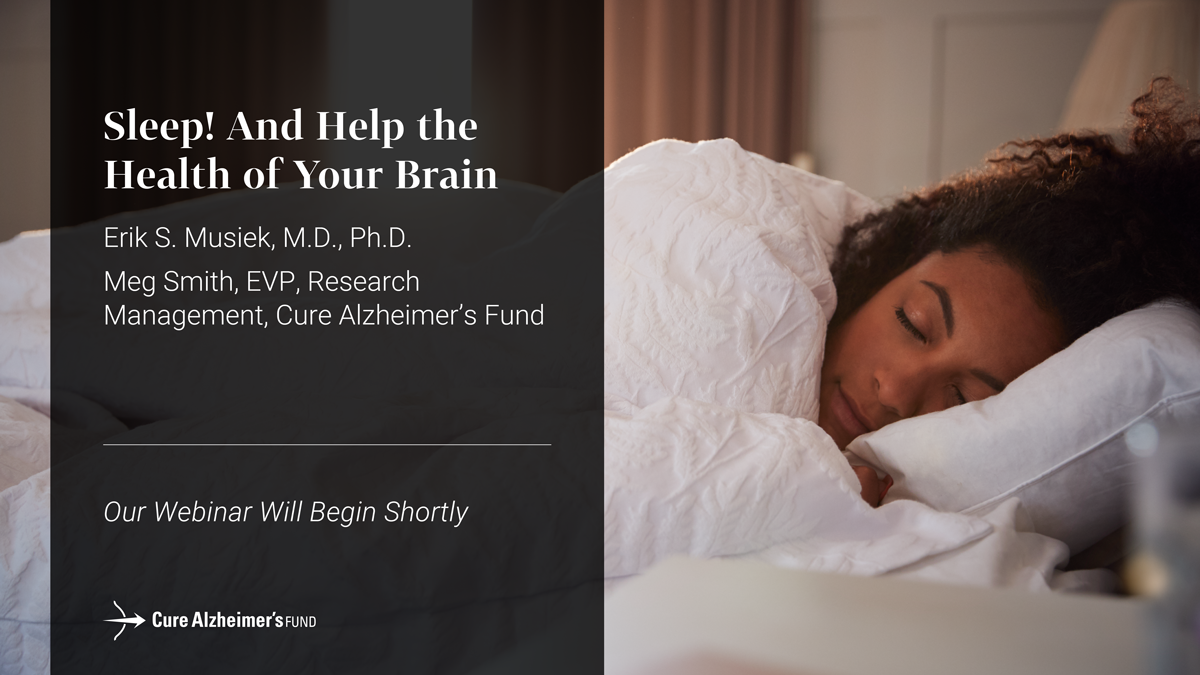
Jerry Rappaport (1927 – 2021)
It is with sadness that we share the news of the passing of Jerome (Jerry) Rappaport, husband of our founder and Board member, Phyllis Rappaport, and dear friend to Cure Alzheimer’s Fund.

Recording of Webinar on Sleep and Brain Health
The November 30th webinar with Dr. Erik Musiek on the important role of sleep to the health of our brains is now available.

New Therapeutic Avenues for Preventing Breakdown of the Blood-Brain Barrier
APOE4, the main Alzheimer’s disease susceptibility gene, is associated with a host of problems: increased amyloid deposition, breakdown of the blood-brain barrier, cerebral blood flow dysfunction, and cognitive deficits. Yet, despite the clearly important role that APOE4 plays in Alzheimer’s disease, how exactly the gene may be contributing to disease has remained unclear. A recent study published in Nature Aging by Berislav Zlokovic, M.D., Ph.D., from the University of Southern California now sheds some light on the relationship between APOE4 and AD progression.

Berislav Zlokovic, M.D., Ph.D.
Removing Astrocytic APOE4 May Be Beneficial for Late-Stage Alzheimer’s Disease
Tauopathies – neurodegenerative disorders characterized by the presence of tau protein in the brain – are more likely to emerge in individuals harboring the APOE4 gene. Compared to other APOE variants, the expression of APOE4 significantly increases neuronal loss, decreases brain volume, and increases glial inflammatory signals. In the absence of APOE, however, these consequences largely disappear, suggesting that APOE4 is a precipitating factor.
Although apoE is secreted by both astrocytes and microglia, previous studies have shown that astrocytic apoE particles are larger and contain more lipids than microglial-derived apoE. As a result, some researchers have wondered whether astrocytic-derived apoE might be playing a unique role in the brain. Now, a new study published by a team of researchers including Oleg Butovsky, Ph.D., Jason Ulrich, Ph.D., and David Holtzman, M.D., reports on the role that astrocytic APOE4 plays in tau-mediated neurodegeneration.

Oleg Butovsky, Ph.D., Jason Ulrich, Ph.D., and David Holtzman, M.D.
The Effect of Menopausal Transition Period on the Brain
Throughout a single lifetime, the brain undergoes many changes. In early development, brain circuits are connected and pruned; in adolescence circuits mature and, in midlife, the menopause transition impacts a host of brain functions—from energy metabolism to synaptogenesis. Despite the clear link between menopause transition and brain function, very little data exists on how the different stages (pre-, peri-, and post-menopause) impact the brain. The results of a study led by Lisa Mosconi, Ph.D., make it clear that the menopausal transition period is a dynamic period of change that impact key brain biomarkers.

Lisa Mosconi, Ph.D.
The Important Role of Beta Amyloid in Understanding—and Solving—Alzheimer’s Disease
Dr. Robert Vassar’s ongoing research focuses on the role of amyloid beta and BACE1 in normal biological processes and in disease mechanisms of relevance to Alzheimer’s disease. In this video, Dr. Vassar explains his studies into the important role that amyloid has in our understanding – and finding solutions for – Alzheimer’s disease.

Robert Vassar, Ph.D.
Donate Today
Today, more than 6 million people in the United States are living with a diagnosis of Alzheimer’s disease. Your gifts have enabled Cure Alzheimer’s Fund to support researchers who are relentless in their desire to understand Alzheimer’s disease and develop a therapy. Because of you, they have made great progress. New information is emerging every day including the impact of genetics and lifestyle choices, and how the disease might be diagnosed early—when treatments could be most effective. There is great momentum in the field of Alzheimer’s disease, but so much more to learn and discover.
If you recently made a donation to Cure Alzheimer’s Fund, thank you. If not, please consider a gift today.
100% of your donation will go directly to research and contribute to progress so that we may realize a world without Alzheimer’s disease.

